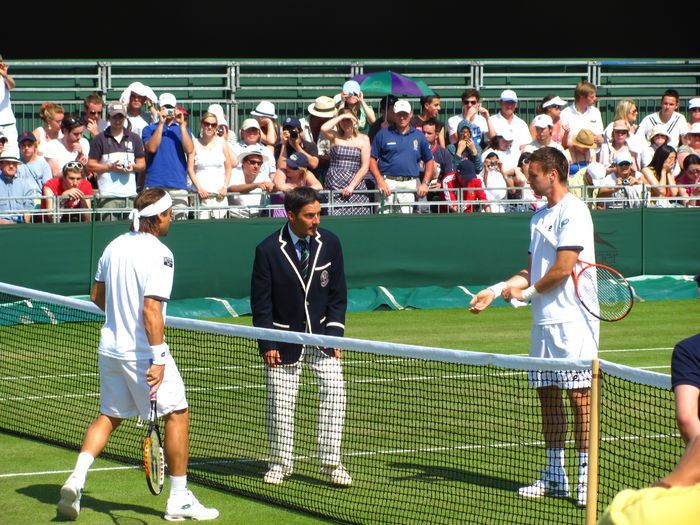US Open: resilience personified
Nick James reviews this year’s US Open and suggests what Cambridge students can learn from the competition

A couple of weeks ago, the US Open came to a sweltering finish. The New York tournament reached a searing 34°C and saw Jannik Sinner take home his first American Grand Slam title.
His victory was hard-fought against Taylor Fritz, the American home favourite, with final set scores of 6-3 6-4 7-5. The victory of the Italian 23-year-old marks another trophy for ‘the New Big Three’ – Carlos Alcaraz, Jannik Sinner, and Holger Rune. These young players are hoping to overthrow the original ‘Big Three’ – Novak Djokovic, Roger Federer and Rafael Nadal – who have dominated tennis for the last two decades. This year, Sinner and Alcaraz took home all four Grand Slam trophies between them at two each.
This year’s US Open has also solidified a changing of the guard in British tennis: British icon Andy Murray retired after this year’s Wimbledon and seems to have passed the baton onto Surrey’s Jack Draper who reached the American semi-final.
“One player is gonna die”
Despite all these history-making performances, it was this year’s conditions that dominated the headlines. “One player is gonna die,” complained Daniil Medvedev during one of his matches. The heat was so bad that players had packs of ice waiting for them in their breaks, as well as hoses blowing cold air down their shirts. The intense heat also led Jack Draper to vomit on the court three times, and many others to stumble and struggle through some of the rounds.
The extreme heat made the US Open one of the most brutal sports competitions of the year and required a level of determination and resilience which sets professional sports players apart from the casual enjoyers of the game (no amount of money would have persuaded me to play in those conditions on live TV).
“I’m not going to retire in the semis of the grand slam”
Perhaps the best example of this was Draper’s semi-final game: despite his nausea and feeling “awful” by the final set in the three-hour match, he told reporters he wasn’t even considering retiring from the game. In the post-match press conference, the player said defiantly: “I’m not going to retire in the semis of the grand slam. I know from the last set, it probably […] wasn’t a great look, but at the end of the day I always try and give my best.”
This level of resilience is almost God-like, and while it may be unattainable for us mere mortals, it’s still a story we can all be inspired by. Cambridge, like professional sports, can be an extremely stressful environment with high expectations placed upon us and sometimes in substandard conditions (especially when fresher’s flu comes around at the start of the year). This year’s US Open showed that it is perfectly natural for us to stumble and falter in these kinds of conditions, and while winning may not always be possible, it doesn’t stop us from giving things a good go. In the post-match press conference, Draper revealed that he knew he had no chance of winning by the third set, but kept on going so that he could hold his head up high.
As a new academic year begins, which will no doubt be fraught with challenges, we would all do well to remember this year’s US Open to help push us through the struggles we face. Even if we know we won’t have time to produce a stellar essay, there’s still value in giving it a good go. And, like tennis players have their teams, we all have our own support networks we can rely on when the going gets tough.
 News / Cambridge academics stand out in King’s 2026 Honours List2 January 2026
News / Cambridge academics stand out in King’s 2026 Honours List2 January 2026 Interviews / You don’t need to peak at Cambridge, says Robin Harding31 December 2025
Interviews / You don’t need to peak at Cambridge, says Robin Harding31 December 2025 Comment / What happened to men at Cambridge?31 December 2025
Comment / What happened to men at Cambridge?31 December 2025 Features / “It’s a momentary expression of rage”: reforming democracy from Cambridge4 January 2026
Features / “It’s a momentary expression of rage”: reforming democracy from Cambridge4 January 2026 News / Varsity’s biggest stories of 202531 December 2025
News / Varsity’s biggest stories of 202531 December 2025










